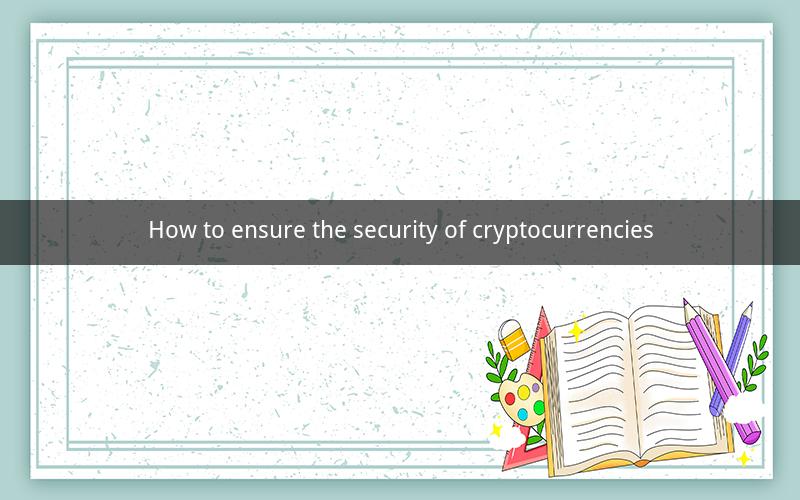
Directory
1. Introduction to Cryptocurrency Security
2. Understanding the Nature of Cryptocurrency
3. Best Practices for Storing Cryptocurrencies
4. Security Measures for Online Wallets
5. Importance of Two-Factor Authentication
6. Regular Updates and Software Maintenance
7. Safekeeping Private Keys
8. Educating Yourself and Staying Informed
9. Utilizing Multi-Sig Wallets
10. Conclusion
Introduction to Cryptocurrency Security
In an era where digital currencies are gaining momentum, ensuring the security of cryptocurrencies has become a paramount concern. As the value of cryptocurrencies continues to rise, so does the risk of theft and unauthorized access. This guide aims to provide an in-depth look at various strategies and practices to safeguard your digital assets.
Understanding the Nature of Cryptocurrency
Cryptocurrencies are digital or virtual currencies that use cryptography to secure transactions and to control the creation of new units. Unlike traditional fiat currencies, cryptocurrencies operate independently of a central authority, such as a government or bank. This decentralized nature makes them susceptible to various security threats.
Best Practices for Storing Cryptocurrencies
1. Cold Storage: The most secure method for storing cryptocurrencies is cold storage, which involves keeping your digital assets offline. Hardware wallets and paper wallets are popular cold storage solutions.
2. Backup: Regularly backup your wallets and private keys to prevent data loss. Store backups in multiple secure locations.
3. Security Software: Use reputable security software on your computer and mobile devices to protect against malware and phishing attempts.
Security Measures for Online Wallets
1. Strong Passwords: Create strong, unique passwords for your online wallets and avoid using the same password for multiple accounts.
2. Multi-Factor Authentication: Enable two-factor authentication (2FA) to add an extra layer of security.
3. Phishing Awareness: Be vigilant about phishing scams, as cybercriminals often attempt to steal private keys by impersonating legitimate services.
Importance of Two-Factor Authentication
Two-factor authentication (2FA) is a crucial security measure that requires users to provide two different types of identification before accessing an account. This can include something you know (like a password), something you have (like a mobile device), or something you are (like a fingerprint). Implementing 2FA significantly reduces the risk of unauthorized access.
Regular Updates and Software Maintenance
Keep your devices and software up to date with the latest security patches and updates. Vulnerabilities in outdated software can be exploited by cybercriminals to gain access to your cryptocurrencies.
Safekeeping Private Keys
Private keys are essential for accessing and controlling your cryptocurrencies. They should be kept secret and never shared with anyone. Use a secure method, such as a hardware wallet, to store private keys.
Educating Yourself and Staying Informed
Stay informed about the latest security threats and best practices in cryptocurrency security. Educate yourself on the various types of wallets, exchanges, and other tools available to manage your digital assets.
Utilizing Multi-Sig Wallets
Multi-signature wallets require multiple private keys to authorize a transaction, providing an additional layer of security. This method is particularly useful for organizations or groups with shared ownership of cryptocurrencies.
Conclusion
Ensuring the security of your cryptocurrencies requires a combination of knowledge, caution, and the use of appropriate tools. By following the best practices outlined in this guide, you can significantly reduce the risk of losing your digital assets to theft or unauthorized access.
---
Questions and Answers
1. Q: What is the main difference between hot and cold storage for cryptocurrencies?
A: Hot storage refers to online wallets, which are more accessible but less secure, while cold storage involves offline methods like hardware wallets, which are more secure but less convenient.
2. Q: Why is it important to use strong passwords for cryptocurrency wallets?
A: Strong passwords make it more difficult for hackers to guess or crack your account credentials, thereby reducing the risk of unauthorized access.
3. Q: Can I use the same password for my cryptocurrency wallet and email account?
A: No, it is crucial to use unique passwords for each account to prevent a single breach from compromising multiple accounts.
4. Q: What is the risk of using a public Wi-Fi network to access my cryptocurrency wallet?
A: Public Wi-Fi networks are often unsecured, making it easier for hackers to intercept your data, including your private keys.
5. Q: How can I protect my private keys from physical theft?
A: Store your private keys in a secure, locked location or use a hardware wallet designed specifically for this purpose.
6. Q: Are paper wallets a safe way to store cryptocurrencies?
A: Paper wallets can be secure if they are properly generated and stored in a safe environment, away from moisture and light.
7. Q: What should I do if I suspect my cryptocurrency wallet has been compromised?
A: Change your password immediately, enable 2FA if not already in place, and contact the wallet provider for assistance.
8. Q: Can I use a regular USB drive to store my cryptocurrency private keys?
A: While a USB drive can be used, it is essential to ensure the drive itself is secure and free from malware.
9. Q: Are there any legal implications of using cryptocurrencies?
A: The legal status of cryptocurrencies varies by country, so it is important to stay informed about the laws and regulations in your jurisdiction.
10. Q: How often should I update my cryptocurrency wallet software?
A: Regularly update your wallet software to ensure it has the latest security features and patches to protect against vulnerabilities.